Little Cabin in the Woods
 03 December 2019
03 December 2019 
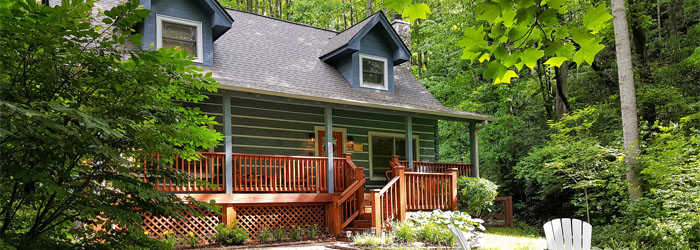
Daydreaming about buying your very own wilderness cabin
Daydreaming about buying your very own cabin? Somewhere at 6,000 feet where the highs are in the 80s in summer and the lows are in the 50s? Just a small place, not too expensive?
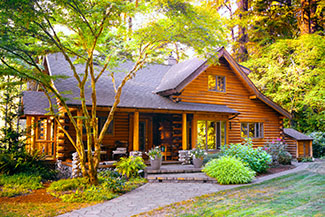
Although you have to be careful about any real estate purchase, what draws us to Northern Arizona is the breezes running through the quaking aspen leaves and the knowledge that there are pockets in the area where I am out of cell range.
Here are some important questions to ask if you have been bitten by the cabin bug:
If you find a cabin you like:
1 | How is the property accessed?
This question is multi-faceted! Is it a shared access? Is it secure from future changes? What are the requirements to access the property in the event of a storm- will you need 4- wheel drive to get there? Is it close enough to home that you will actually use it?
2 | Is the cabin you're looking at constructed with or without a building permit?
Yavapai County (and many other places in Arizona) didn't require permits for cabins until about 20 years ago. That may mean the need for some repairs after you buy to bring your cabin up to code.
3 | How is the cabin supplied with water?
A small percentage of cabin homes are in a community with a common well or water source. But, often cabins rely on well water. What is the quality of the water? If there is no well the other option is to have water hauled in via tank and put in a holding tank.
4 | How is waste managed?
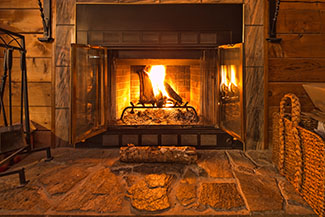
Some mountain communities may have a sewer system. The most common scenario for remote properties is a septic tank. What is the condition of the tank and the leach field?
5 | What about heat and electricity?
What is the source of power for the property? It is nice if it has electricity. Find out from neighbors how reliable it is. Another good source of energy is a propane powered generator- is there a reliable company in the area? If the property has solar power what shape are the panels and the system in? Perhaps the cabin only has a fireplace- are you willing and able to maintain a fireplace and chop wood?
6 | What repairs does your cabin need?
Cabins can be high maintenance if the location takes on a lot of snow or rain so a good question to ask yourself is do I want to buy a place that is a project or a paradise in which to relax? Other maintenance issues to consider include ongoing repairs like plumbing and electricity basically, any repairs you need in your home can also be needed in your cabin.
7 | Who will do the needed repairs and maintenance on the cabin?
How handy are you? Are you planning on maintaining the building yourself? This is probably the best case scenario for a cabin owner. Remember that the farther you are from a town or city , the harder it will be to find people who will service your home. Ask around the area and find out who is doing the work in your area. Find out how long have they been in business and if they plan on staying and working in the area.
If you find raw land you like:
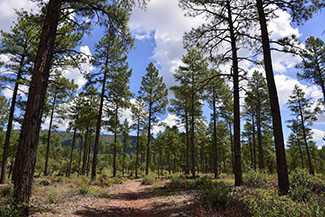 What are the restrictions on the property and how easy is the planning department to work with? Planning in rural areas is being more tightly controlled. Find out about any covenants or deed restrictions on the lot you want to buy so you can build your cabin to suit the rules.
What are the restrictions on the property and how easy is the planning department to work with? Planning in rural areas is being more tightly controlled. Find out about any covenants or deed restrictions on the lot you want to buy so you can build your cabin to suit the rules.
What is the lay of the land? The property itself should be studied- is it in a floodplain? What are the restrictions on the adjacent parcels? Are there natural resources that are protected.. Don't let the stars in your eyes keep you from seeing the whole picture!!
Where will your utilities come from? Where will your water come from? If you have to dig a well how deep will you have to go? If you need to haul water where is the nearest water company and do they deliver? Is the ground suitable for septic ( will it percolate) or do you need to consider an alternative like evaporation- transpiration? Is there electricity nearby that would make it cost effective to install or will you need to consider other sources of power like a propane powered generator or simply a wood stove.
What are your choices for building?
Custom Home:
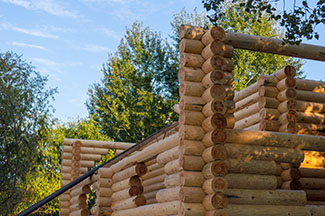 This is of course, the most costly option. Budget guidelines range from $250 to $350 per Sq ft. Questions that need to be asked include: Are there reliable builders in the area. Will they be there to service warranties. What are the options for water, power and septic. Who will design the building and how long will that take? Having an architect and a builder can take a year or more depending on their workload, your availability, and the county's permitting and planning departments wait time.
This is of course, the most costly option. Budget guidelines range from $250 to $350 per Sq ft. Questions that need to be asked include: Are there reliable builders in the area. Will they be there to service warranties. What are the options for water, power and septic. Who will design the building and how long will that take? Having an architect and a builder can take a year or more depending on their workload, your availability, and the county's permitting and planning departments wait time.
Kit Home:
Kit homes are a nice option. A home can be ordered while all other property improvements are being made. Cost for a shell kit range from $35 to $75 depending on complexity of design and material selections. The completion of the interior can run another $35 to $75 depending on how much of the work you will be doing yourself and the quality of the finishes you desire.
Manufactured Homes:
Newer models of the manufactured home have come along way and can be as large as 3,000 sq ft. The roof must be rated for snow if the property is in a If your lot is in an area where it snows the roof must be rated for s Ranging from $50 to $75 a foot they are certainly the most affordable option. They are subject to more restrictions than other types of housing but, they allow a quick solution and by pass the construction process altogether. A significant disadvantage is the rate at which they depreciate.
Purchasing or building a mountain cabin home or raw land can be a wonderful experience if you approach the project armed with the right questions. These questions, and answers, will keep you from being blindsided with unexpected costs and issues. A mountain retreat can provide years and maybe even generations of memory making and relaxation.
###
Photo Credits:
- Shutterstock
RELATED CONTENT:
- Article: Rosie's Tips For Shopping Rural Arizona Real Estate
- Blog: Are There Nightmares Hidden In That Dream House
- Blog: Update your kitchen with new lighting!
- DIY Q&A: What Should I Look Out For In Purchasing A Flipped Home?
- Podcast: Should You Buy A Flipped House?
Print this page
recent post
- Duck, Duck, Duct! How Often Should Ductwork Be Cleaned?
- Vinyl vs. Fiberglass Windows: Which Is The Better Choice Of Replacement Window?
- We May Be The Grand Canyon State, But The Rocky Mountains Are Important For Arizona
- Welcome to Arizona! Things A Newbie to Arizona Should Know
- The Pros & Cons of Buying A Flipped House
- Getting In On The Ground Floor
- Why It’s More Critical Than Ever To Get Your AC Serviced Before Summer
- The Reality of Remodeling
- What To Look For When Comparing Your Roofing Quotes
- What To Expect When Buying New Windows & Doors
